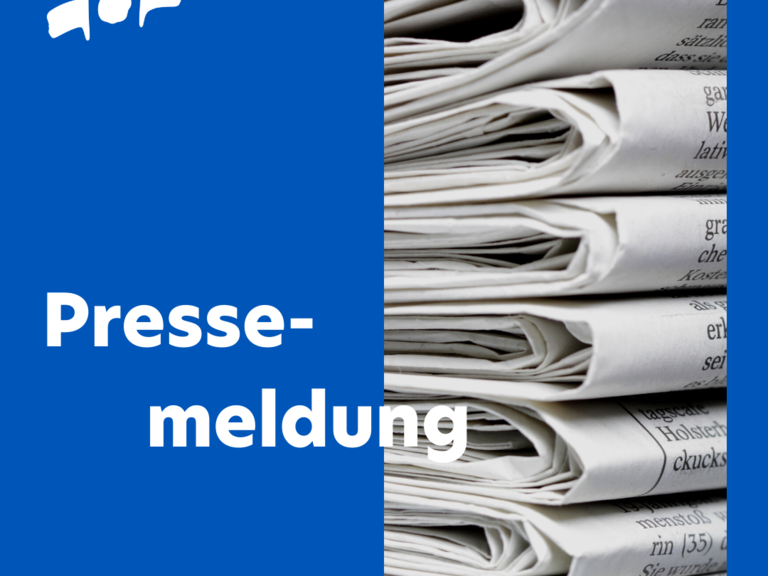Municipal heat planning
Start in March 2024
Municipal heat planning is a strategic planning instrument for a city that is enshrined in the Heat Planning Act. Cities the size of Hof are required by law to have a municipal heat plan by June 30, 2028. The city of Hof has already decided on municipal heat planning in order to create planning security for citizens, companies, energy suppliers and other stakeholders at an early stage. Even if the city already has a municipal heating plan in 2025, this does not create any premature obligations for the city or its citizens.
EGS-plan, Ingenieurgesellschaft für Energie-, Gebäude- und Solartechnik mbH, Gropiusplatz 10, 70563 Stuttgart, was commissioned by the Hof municipal administration to draw up the municipal heating plan. The necessary data is currently being collected on the basis of Section 3 WPG. Data on energy or fuel consumption and electricity consumption for heating purposes is collected and processed. The type and scope of the data collected are set out in Annex 1 to Section 15 WPG. You can view the public announcement in accordance with the Heat Planning Act here.

Advantages
of early heat planning
Greenhouse gas emissions in Hof are largely caused by the provision of heating energy and hot water. The heating transition towards a climate-neutral heat supply is therefore a crucial building block on the way to Hof's goal of climate neutrality by 2040.
Homeowners, builders and tenants also want to know what energy costs they will be facing in the coming decades. There is great interest in gaining clarity about which energy source and supply can be expected locally in the future. A municipal heating plan should show what conditions exist in Hof and whether a connection to a district heating network is possible.

Hand in hand
Private initiative and municipal heat planning
The heating transition requires a transformation in two areas:
Firstly, heating requirements must be significantly reduced and buildings and appliances must become energy efficient. Every individual has a role to play here. Energy-efficient building refurbishment and energy-saving household appliances usually pay for themselves quickly through lower energy costs. Energy-efficient refurbishment also significantly increases the value of a property.
Contact us if you are interested in neutral energy advice on refurbishment and funding opportunities: by e-mail at klimaschutz(at)stadt-hof.de or by telephone on 09281-815-1522 and 815-1523.
On the other hand, the remaining heat demand must be covered in a climate-neutral way by using renewable energies. However, the transformation cannot take place in the shortest possible time, but requires a concrete strategy that is adapted to local conditions and takes local potential into account - "municipal heat planning" is needed.
1. Inventory analysis
First, the current situation is determined. The bodies responsible for heat planning may also collect data for this purpose. This inventory analysis includes, above all, data on the building stock and building use, the determination of current heat requirements or consumption as well as the existing heat generators and energy infrastructures, including the energy sources used. Here you will find the analysis and the procedure for the suitability test:
Procedure for the suitability test
2. Potential analysis
Among other things, the potential analysis examines which different sources of renewable energy or unavoidable waste heat are available for heat supply in the future and can be harnessed under economic conditions. This could be, for example, waste heat from a local data center or the development of geothermal or solar thermal potential, environmental heat or wastewater heat.
On the other hand, the potential for saving energy by reducing heat demand in buildings, industry and commercial use is estimated.
4. Municipal heat planning
In line with the target scenario, individual areas are divided into prospective heat supply areas that can, for example, be supplied centrally via a heating network, a hydrogen network or decentrally via a separate system in the building (e.g. a heat pump or a biomass boiler).
A broad participation of local stakeholders is planned for the implementation of heat planning: The public, operators of energy supply and heating networks, authorities and other public agencies, major consumers, energy communities and other stakeholders are to be involved in the process.
In order to take account of changing framework conditions and learning effects, a regular review and update of the heating plan is planned.
Frequently asked questions
No!
- The city of Hof is obliged to draw up a municipal heating plan by mid-2028.
- "If a decision is made in a municipality before mid-2026 or mid-2028 on the designation as an area for the construction or expansion of a heating network or as a hydrogen network expansion area on the basis of a heating plan, the installation of heating systems with 65 percent renewable energies will already be mandatory there. The heating plan alone does not trigger this earlier application of the obligations of the GEG . Rather, on this basis, an additional decision by the municipality on the area designation is required, which must be published." (Source: Federal Ministry of Housing, Urban Development and Building)
Details on the procedure can be found here.
There is no obligation to replace a fossil-fuelled heating system, neither from the municipal heating planning nor from the Building Energy Act 2024 (GEG). Legislation currently stipulates that the operation of fossil-fuelled heating systems will be banned from 2045.
It therefore makes sense to think about the right heating system at an early stage. Consultancy services are available for this purpose. Municipal heating planning can provide initial guidance.
Despite municipal heating planning, fossil-fuelled heating systems can be installed. However, the regulations of the Building Energy Act must be observed:
Advice must be given on the possible effects of heat planning and possible inefficiency, in particular due to rising carbon dioxide prices, before a heating system fuelled by a solid, liquid or gaseous fuel is installed and set up. The consultation must be carried out by a competent person [competent in accordance with Section 60a (4) numbers 1, 2, 4 and 6 (chimney sweeps, plumbers and heating engineers, stove and air heating engineers and listed energy efficiency experts) or in accordance with Section 88 (1) ‘Persons authorised to issue an energy performance certificate’].
If a heating system is replaced in the respective municipality from 1 January 2024 and before the 65% rule comes into force (1 July 2028 at the latest), gas and oil heating systems may continue to be installed. However, in these cases, the operator of the heating system must ensure that from 1 January 2029 at least 15 percent, from 2035 at least 30 percent and from 2040 at least 60 percent of the heat provided by the system is generated from biomass or green or blue hydrogen (including derivatives produced from it).
This requirement is only waived if the operator is waiting for a connection to a new heating network or a hydrogen supply from a converted gas network and fulfils the relevant requirements.
Once the waiting period has expired, the owner must connect the building to the relevant network. If it turns out that the heat or hydrogen network is not realised, the building owners concerned must implement another fulfilment option within three years (e.g. hybrid heating by retrofitting a heat pump).
- The 65% rule does not apply to heating systems that were commissioned before 19.04.2023 (cabinet decision) and are installed by 18.10.2024.
- Existing heating systems are not affected and can continue to be used. Repairs are also still possible.
- Biomass can still be used as a stand-alone or hybrid technology in new builds.
- The general end date for the use of fossil fuels in heating systems is 31 December 2044.
In addition, prices for CO2 are expected to rise in the future, both at national and European level. This means that the use of fossil fuels is likely to become more expensive in the coming years.
The purchase of a new fossil-fuelled heating system therefore represents an investment risk and should be carefully considered.
Consider suitable heating technology and any necessary refurbishment steps at an early stage. Make use of appropriate counselling services.
An information letter from the Federal Ministry of Economics and Climate Protection and the Federal Ministry of Housing, Urban Development and Building on installing a new heating system can be found here.
Several parameters were taken into account to divide the areas into suitable areas for district heating and areas with decentralised supply:
- Individual potential of energy sources to meet demand
- Development costs
- GHG savings potential
- Heat density in the cluster
- Cooling demand in the cluster
- Space required for infrastructure
- High temperature in buildings
The suitability of the supply type was determined by evaluating the parameters.
The hydrogen core network planned by the federal government bypasses Hof. The city council is in favour of establishing a connection to Hof.
Full financing by the federal government
The creation of a municipal heating plan in accordance with the municipal guideline and WPG serves the goals of the federal government to achieve climate neutrality in the area of heat transition. Under the funding code 67K26188, the city of Hof is receiving 100% funding for this from federal funds under the municipal guideline www.klimaschutz.de/kommunalrichtlinie. The project will run for 12 months from the start of the project in March 2024. The project partners involved are Z.U.G (Zukunft - Umwelt - Gesellschaft gGmbH), the City of Hof, Stadtwerke Hof Holding GmbH, Abwasserverband Saale, EGS-plan, Ingenieurgesellschaft für Energie-, Gebäude- und Solartechnik mbH and other local stakeholders.
National climate protection initiative
With the National Climate Initiative, the German government has been initiating and funding numerous projects that contribute to reducing greenhouse gas emissions since 2008. Its programs and projects cover a broad spectrum of climate protection activities: From the development of long-term strategies to concrete assistance and investment-based funding measures. This diversity guarantees a good idea. The National Climate Initiative helps to anchor climate protection on the ground. It benefits consumers as well as companies, local authorities and educational institutions.






